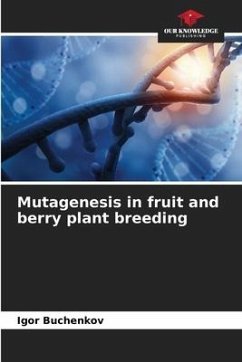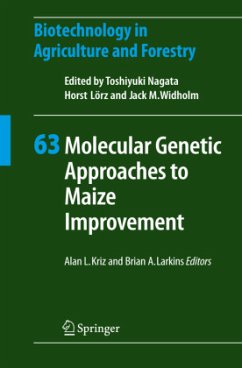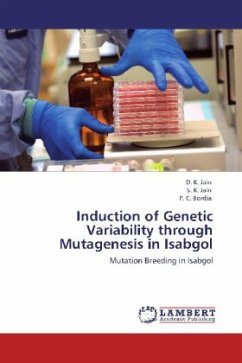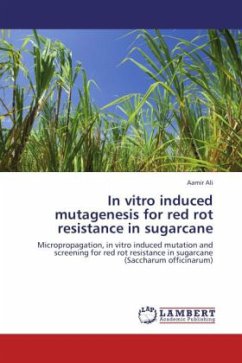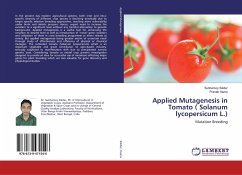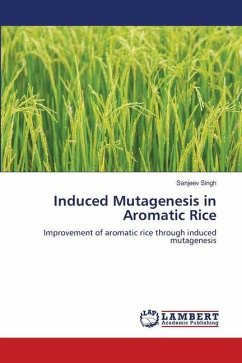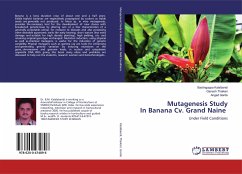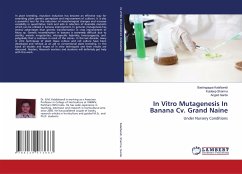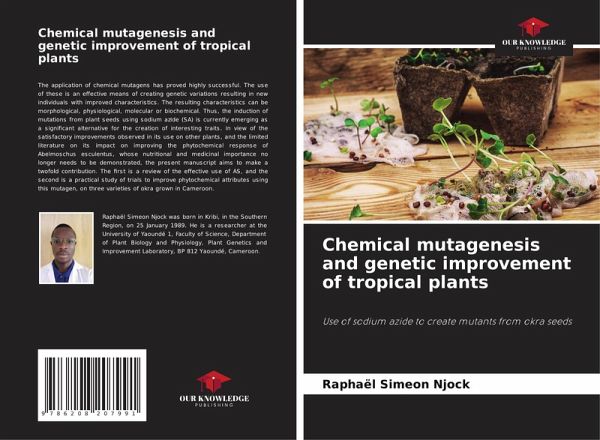
Chemical mutagenesis and genetic improvement of tropical plants
Use of sodium azide to create mutants from okra seeds
Versandkostenfrei!
Versandfertig in 6-10 Tagen
29,99 €
inkl. MwSt.

PAYBACK Punkte
15 °P sammeln!
The application of chemical mutagens has proved highly successful. The use of these is an effective means of creating genetic variations resulting in new individuals with improved characteristics. The resulting characteristics can be morphological, physiological, molecular or biochemical. Thus, the induction of mutations from plant seeds using sodium azide (SA) is currently emerging as a significant alternative for the creation of interesting traits. In view of the satisfactory improvements observed in its use on other plants, and the limited literature on its impact on improving the phytochem...
The application of chemical mutagens has proved highly successful. The use of these is an effective means of creating genetic variations resulting in new individuals with improved characteristics. The resulting characteristics can be morphological, physiological, molecular or biochemical. Thus, the induction of mutations from plant seeds using sodium azide (SA) is currently emerging as a significant alternative for the creation of interesting traits. In view of the satisfactory improvements observed in its use on other plants, and the limited literature on its impact on improving the phytochemical response of Abelmoschus esculentus, whose nutritional and medicinal importance no longer needs to be demonstrated, the present manuscript aims to make a twofold contribution. The first is a review of the effective use of AS, and the second is a practical study of trials to improve phytochemical attributes using this mutagen, on three varieties of okra grown in Cameroon.





